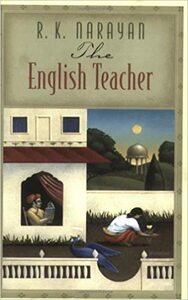Take a photo of a barcode or cover
This suffered slightly for being read directly after Haruki Murakami’s most recent novel. The protagonist’s wife, who dies halfway through, returns to him as a ghost—not visibly, but “dictating” to a neighbour—and although Narayan’s good enough to make me believe it within the world of the novel, my external reading self felt wearied by more magical realism. (Though Narayan’s Susila is a much more funny, spiky, and irreverent woman than Murakami’s dreamy, unattainable girls.) Not sure about the overall shape of the piece, though. Where is it all tending? What’s Narayan’s focus? Unclear. But really sweet on parental and spousal love. I enjoyed it, though I wouldn’t rush to read more. Source: local public library #LoveYourLibrary
emotional
hopeful
inspiring
sad
tense
medium-paced
emotional
hopeful
reflective
fast-paced
emotional
inspiring
reflective
sad
medium-paced
Plot or Character Driven:
Character
Strong character development:
Yes
Loveable characters:
Yes
Diverse cast of characters:
Yes
Flaws of characters a main focus:
No
emotional
reflective
sad
slow-paced
Plot or Character Driven:
Character
Strong character development:
Yes
Loveable characters:
Yes
Diverse cast of characters:
Yes
Flaws of characters a main focus:
Yes
While I adore Narayan's clean prose, and ridiculously effortless style, this book came as a disappointment, and I think that this was because of the ending. I felt... almost cheated of a denouement on the last page.
"The English Teacher" is R K Narayan's thoughts on dealing with death of a loved one through a story of a normal English teacher.
What strikes me is how this book has a sharp change in writing style: first half of the book revolves around minute details, mood changes and description of surroundings. Post the death of the protagonist's wife, the thoughts move into emotions, turmoil and reflections. This maybe incoherent and imperfect to a seasoned reader but R K Narayan as a writer is someone who ensures through his works that we understand imperfections instead of criticizing.
On a concluding note, the final line leaves us with bitter-sweet feeling- "It was a moment of rare, immutable joy- a moment for which one feels grateful to Life and Death."
What strikes me is how this book has a sharp change in writing style: first half of the book revolves around minute details, mood changes and description of surroundings. Post the death of the protagonist's wife, the thoughts move into emotions, turmoil and reflections. This maybe incoherent and imperfect to a seasoned reader but R K Narayan as a writer is someone who ensures through his works that we understand imperfections instead of criticizing.
On a concluding note, the final line leaves us with bitter-sweet feeling- "It was a moment of rare, immutable joy- a moment for which one feels grateful to Life and Death."
I enjoyed this book more than I thought I would. The plain cover and the fact that it was written by and Indian guy over 60 years ago made me think that I was going to be bored by this, but I wasn't. It was simple and understated, but it made me think a lot about my own life and it had a good message.


